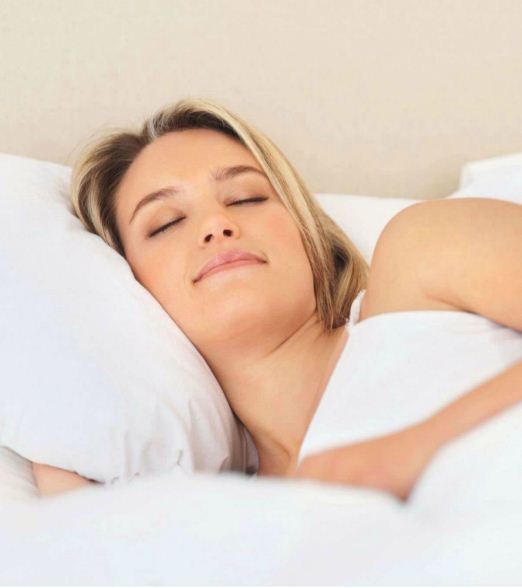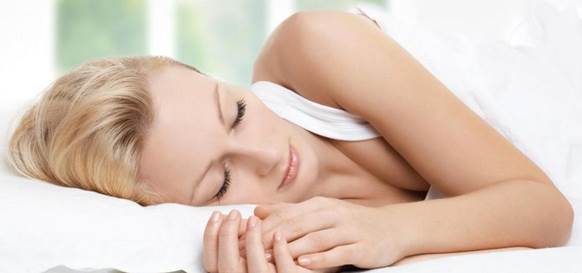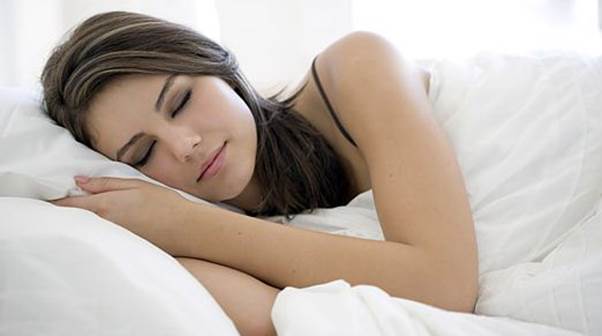Sleep deprivation can have long-term
health, social and spiritual repercussions-but yoga has the power to help you
reclaim your
Each night, in an effort to coax my one
year old to sleep, I whisper this old nursery rhyme: "Early to bed and
early to rise makes a person healthy, wealthy and wise". My daughter will
suck her thumb, close her eyes and settle in for a deep slumber. I, on the
other hand, tiptoe into the next room, turn on my computer and start work for
the day.
My sleep cycle has changed dramatically
since giving birth. Before, I would wake early most mornings and head to the
yoga studio for a dynamic two-hour asana practice. In the evenings, I'd be in
bed asleep by 10.30 p.m. I was fit, energetic and easily able to cope with the
competing demands of work, friends and family.

My
sleep cycle has changed dramatically since giving birth.
These days, I'm lucky to be in bed before i
a.m. and still asleep at 6 a.m. I've started drinking coffee and rely on the
caffeine to lift the veil of tiredness that covers me most mornings. My eyes
are bloodshot, my memory jumbled and my energy reserves consistently low. The
lack of sleep is starting to show
Of course, I'm not alone. Most new parents
experience some form of sleep deprivation. High-powered executives are
susceptible, as are shift workers, the elderly and adolescents, who often
struggle to balance schoolwork with social media. In fact, according to
experts, in our fast-paced, work-centric, 24-hour world, most people's sleep is
at risk.
Society of insomniacs
A recent report commissioned by the Sleep
Health Foundation found that around 1.5 million Australian adults (around nine
per cent of the population) have been diagnosed with a sleep disorder. Many
thousands more go undiagnosed.
"Insomnia is on the rise," says
Marc Cohen, professor of Health Sciences at RMIT University. "More than 80
per cent of the population will have a sleeping problem at some stage in their
lives."

"More
than 80 per cent of the population will have a sleeping problem at some stage
in their lives."
Over time, chronic partial sleep
deprivation can cause a raft of health problems including low immunity, poor
digestion, low sex drive, hormonal imbalance, obesity, addiction and
depression. It's also often a contributing factor in workplace injuries and can
impede our ability to tune in to our spiritual selves.
Stress heads
Medical-based sleeping disorders aside,
"The most common sleep disturbance is either difficulty initiating sleep
or difficultly maintaining sleep," says Moira Junge, a health psychologist
specializing in sleep disorders and spokesperson for the Australasian Sleep
Association.
In most cases, stress and anxiety are at
the root of the problem. Lifestyle and diet also play an important part.
"We're very confused, we're very time-poor, we're very stressed out and
don't know our place," says naturopath, herbalist and homeopath Anthia
Koullouros of OVViO Organics.
"I see five to eight clients almost
every day and have done so for 20 years. All I see are people who arc stressed
out and fearful, with thoughts that keep them up at night and the inability to
switch off their mind."

That
said, not all yogic practices are appropriate for treating insomnia and,
practiced at the wrong time, certain types of asana and pranayama can make
things worse.
There's long been a culture of
pharmacological intervention in Australia. "In around 2008-2009, our
statistics were that more than 90 per cent of people presenting to a GP who
mentioned a sleeping problem were prescribed a pill," says Junge. But that
is changing as the body of evidence grows around non-pharmacological techniques
such as yoga.
Recently, a clinical trial overseen by
Professor Cohen found that yoga had a positive effect on reducing insomnia, and
improving sleep and quality of life in the elderly. A 2009 study by the
Australian Institute of Yoga Therapy and the Centre for Adult Education yielded
similar results.
That said, not all yogic practices are
appropriate for treating insomnia and, practiced at the wrong time, certain
types of asana and pranayama can make things worse.